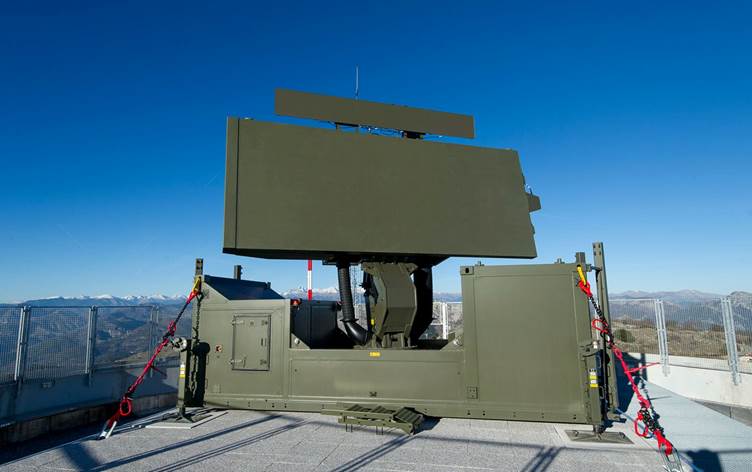ERBIL, Kurdistan Region - Iraq is in the process of purchasing anti-aircraft weapons through sending military and technical delegations to several countries to explore its options, a spokesperson to the prime minister said on Monday.
“Iraq has contracted French radars and a batch of them have arrived, and we are proceeding to complete the radar systems in general, including low, medium, and high-range radars,” Major General Yehia Rasool, military spokesperson to Prime Minister Mohammed Shia’ al-Sudani, told state media.
Rasool noted that Iraqi military and technical delegation have visited several countries to review their anti-aircraft weapons and have made offers to purchase the systems, without specifically revealing the countries.
“The Air Defense Command is capable of radar detection and monitoring the movement of aircraft within Iraqi airspace,” Rasool stressed.
Hussein Hashim al-Amiri, a member of the Iraqi parliament’s security and defense committee, told state media that work is underway to complete the necessary infrastructure to implement the GM403 radar contract with the French company Thales in the provinces of Nineveh, Kirkuk, Baghdad, and Diwaniya.
The first phase of the contract will cost Baghdad €160 million and “has been installed tactically,” according to Amiri.
Iraq’s airspace has repeatedly come under attack, especially by neighboring Turkey and Iran striking positions of Kurdish groups in the Kurdistan Region. The strikes have intensified in recent years, despite having drawn the ire of Baghdad.
Air and drone strikes inside Iraq especially intensified following the onset of the Israel-Gaza war on October 7, with pro-Iran militia groups carrying out air and drone strikes against US personnel based in the country in response to Washington’s support for Israel in its war against the Gaza Strip.
The US has carried out multiple rounds of retaliatory airstrikes against the militias, striking pro-Iran militias it accused of targeting American interests in the country.
The tit-for-tat strikes have drawn strong condemnation from Baghdad, with Iraqi officials urging the country not to be used as a land to settle scores. Calls from several hardline Iraqi Shiite politicians to expel US forces from the country have also initiated talks between Baghdad and Washington to end the presence of the US-led global coalition against the Islamic State (ISIS) from the country.
“Iraq has contracted French radars and a batch of them have arrived, and we are proceeding to complete the radar systems in general, including low, medium, and high-range radars,” Major General Yehia Rasool, military spokesperson to Prime Minister Mohammed Shia’ al-Sudani, told state media.
Rasool noted that Iraqi military and technical delegation have visited several countries to review their anti-aircraft weapons and have made offers to purchase the systems, without specifically revealing the countries.
“The Air Defense Command is capable of radar detection and monitoring the movement of aircraft within Iraqi airspace,” Rasool stressed.
Hussein Hashim al-Amiri, a member of the Iraqi parliament’s security and defense committee, told state media that work is underway to complete the necessary infrastructure to implement the GM403 radar contract with the French company Thales in the provinces of Nineveh, Kirkuk, Baghdad, and Diwaniya.
The first phase of the contract will cost Baghdad €160 million and “has been installed tactically,” according to Amiri.
Iraq’s airspace has repeatedly come under attack, especially by neighboring Turkey and Iran striking positions of Kurdish groups in the Kurdistan Region. The strikes have intensified in recent years, despite having drawn the ire of Baghdad.
Air and drone strikes inside Iraq especially intensified following the onset of the Israel-Gaza war on October 7, with pro-Iran militia groups carrying out air and drone strikes against US personnel based in the country in response to Washington’s support for Israel in its war against the Gaza Strip.
The US has carried out multiple rounds of retaliatory airstrikes against the militias, striking pro-Iran militias it accused of targeting American interests in the country.
The tit-for-tat strikes have drawn strong condemnation from Baghdad, with Iraqi officials urging the country not to be used as a land to settle scores. Calls from several hardline Iraqi Shiite politicians to expel US forces from the country have also initiated talks between Baghdad and Washington to end the presence of the US-led global coalition against the Islamic State (ISIS) from the country.









Comments
Rudaw moderates all comments submitted on our website. We welcome comments which are relevant to the article and encourage further discussion about the issues that matter to you. We also welcome constructive criticism about Rudaw.
To be approved for publication, however, your comments must meet our community guidelines.
We will not tolerate the following: profanity, threats, personal attacks, vulgarity, abuse (such as sexism, racism, homophobia or xenophobia), or commercial or personal promotion.
Comments that do not meet our guidelines will be rejected. Comments are not edited – they are either approved or rejected.
Post a comment